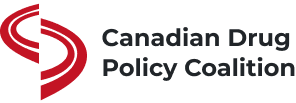Today, the Vancouver Police Department reported a decrease in seizures related to simple drug possession since British Columbia’s decriminalization pilot launched in early 2023. While this news is positive, it doesn’t give us the full picture of how drug-related issues are being handled in the criminal-legal system. We need more openness and clarity. To truly reduce harm through decriminalization, we must minimize police involvement and interactions overall. Matters concerning substance use – including referrals and outreach – should be dealt with through health and social systems, not police.
Police Interactions Can Drive Harm
It is important to note that when the VPD reports they made no seizures for simple possession, it does not mean there were no police interactions with individuals who use drugs. We know that interactions with police and criminal justice systems often drive harm for people who use drugs. For example, we do not have enough information about whether police might categorize seizures as “possession for the purposes of trafficking” rather than simple possession. We also lack data on informal interactions with the police that do not result in seizures, but still have similar negative impacts. These unrecorded interactions can cause the same harms as criminalization, including increasing the risk of death from unregulated drugs due to fear of police intervention and drug confiscation.
BC Drug Decriminalization Threshold Too Low
The combined 2.5 gram threshold for decriminalization is too low to effectively decriminalize people who use drugs in B.C. It does not reflect the evidence regarding the quantities people use or the behaviours of a variety of groups, including people living in rural or remote communities and those purchasing from a safer, more trusted seller. As a result, the 2.5 gram threshold is not a useful measure to determine what is simple possession and what is possession for the purposes of trafficking. More than 30 B.C. organizations have endorsed a recommendation to either remove threshold amounts in their entirety, or immediately scale up the decriminalized personal possession threshold to 28 grams (1 oz) for all illicit drugs, including those currently excluded such as ketamine and benzodiazepines.
We Need Drug Policies That Will Keep Us Safe
There are clear links between criminalizing drug use and causing harm. Enforcement has not reduced drug availability or use. It also comes at a high financial cost, while contributing to an increased risk of overdose and cycles of homelessness. Decriminalization, on the other hand, is associated with fewer people being incarcerated or involved with the criminal-legal system, reduced stigma and better access to services – all of which help prevent harm and overdoses. That is why decriminalization is a crucial part of a larger shift in drug laws and policies to make our communities safer for everyone. This shift must also prioritize equitable access to overdose prevention sites, healthcare, responsibly regulated substances, affordable housing, sufficient income, and evidence-based, voluntary, non-profit treatment.


Leave a Reply